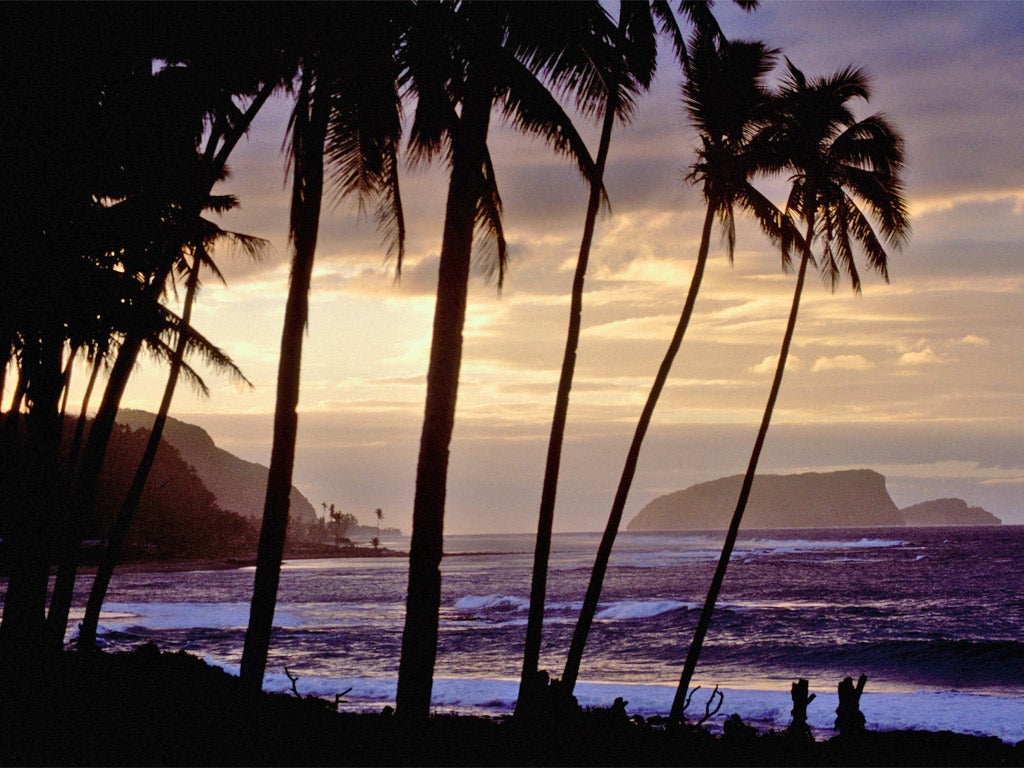The country that's going to bed tonight and waking up on Saturday
The shift to a new time zone means that Samoans will never see Friday, 30 December – and they're not happy about it

Businesses are grumbling about losing a day's takings while having to pay staff a full week's wages, and the 775 Samoans born on 30 December are understandably miffed. Such are the logistical problems facing the South Pacific nation as it prepares to hop over the International Dateline by pretending tomorrow does not exist.
Earlier this year, Samoa's Prime Minister, Tuilaepa Sailele Malielegaoi, decided that, so as to fall into step with its main trading partners, Australia and New Zealand, the country should swap timezones, becoming the first place where the sun rises, rather than the last. In order to do that, it had to skip a whole day, which Mr Tuilaepa decreed should be 30 December 2011.
Many Samoans were unhappy about the move, accusing him of failing to consider the practicalities involved. Samoa's Seventh Day Adventists have threatened to boycott the cancellation of Friday. "God won't accept that we simply erase a day out of the calendar," wrote one Adventist, Noeline Cutts, in the Samoa Observer. Until 1892, the island nation lay west of the dateline; it shifted east in order to trade more easily with California.
In the past century, its focus has switched to Australia and New Zealand, where many expatriate Samoans live – hence the decision to vault back over.
But the commercial argument does not wash with tourism operators, who say Samoa will lose its unique selling-point as the last place on earth to see the sun set. Some cartographers, meanwhile, believe that since the dateline is an international divider, countries should not be able to decide unilaterally where they sit in relation to it.
Samoans born on 30 December are having to celebrate their birthday a day early or late this year. The same choice faces the 43 couples whose wedding anniversary falls tomorrow.
The scrapping of Friday is problematic for Seventh Day Adventists, who celebrate the Sabbath on Saturday. "We will continue to worship on the seventh day of the week," insisted Ms Cutts, raising the prospect of the Adventist Sabbath switching to Sunday, in Samoa at least.
The timezone move has had international repercussions, with the tiny New Zealand territory of Tokelau, which lies just north of Samoa, obliged to follow it west. Tokelau, which has no airport, considers Samoa its gateway to the outside world.
It all seemed rather less complicated 120 years ago, when Samoa crossed the dateline by having two 4 Julys. The Scottish writer Robert Louis Stevenson was living there at the time with his family. His mother, Margaret, wrote: "We are ordered to keep two Mondays in this week."
The editor of the Samoa Observer, Keni Lesa, told Australian Associated Press that many locals regarded the latest move as "another idea from our crazy prime minister". However, Mr Tuilaepa – who has previously ordered Samoans to drive on the left rather than the right – is unmoved. His critics, he declares, are "stupid idiots".
The lost day: For and against
Groups happy with the change:
* It will be easier to do business with Australia and New Zealand. The previous time difference meant Samoa had only four working days a week that coincided with the region's largest economies.
* Prime Minister Tuilaepa Sailele Malielegaoi believes the shift will create "exciting tourism opportunities". "You can have two birthdays, two weddings and two wedding anniversaries on the same date, on separate days, in less than an hour's flight," he said.
* Expatriate Samoans in Australia and New Zealand will find it easier to keep in touch with their friends and relatives back home.
Those unhappy with the change:
* Tourism operators say Samoa will lose its unique selling-point as the last place on Earth to see the sun set.
* Seventh Day Adventists argue that God will not be happy with the removal of an entire day from the calendar.
Jenny Stevens
Join our commenting forum
Join thought-provoking conversations, follow other Independent readers and see their replies
Comments
Bookmark popover
Removed from bookmarks